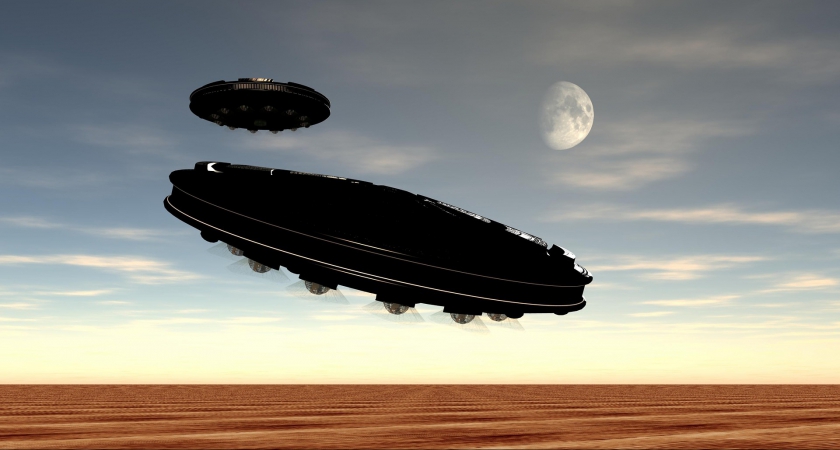Science Revealed explores how we talk about UFOs – University Times

By MARTY LEVINE
When faced with “unidentified flying objects,” what identifications do we tend to give them?
That all depends on the times, said history faculty member Elizabeth Archibald, one of the panelists on the next public lecture in the Science Revealed series, “UFOs and the Stories We Tell About Them,” from the Dietrich School of Arts & Sciences.
This free April 7 event (register here: www.as.pitt.edu/sciencerevealed) also features panelists from several science departments, addressing how humans persist in ascribing alien architects to ancient human feats of engineering; how our brains deal with the prospect of extraterrestrial life; the likelihood that an exoplanet resident could visit here; and the recent U.S. government release about UFOs.
Archibald said there have been UFO reports — mysterious happenings in the sky — as long as there have been reports of anything, including the Middle Ages (her specialty). They’re usually interpreted according to the tenor of the times: as demons or astronomical phenomena or simply the weather.
She’ll be explaining how “we are seeing people’s mental frameworks” when we see past these explanations and what keeps humans “creating explanations for the unexplained.”
Many a medieval chronicle may begin by recording that the king is dead and the harvest was bad this year, but just as often they record marvels. In 9th-century France, for instance, Agobard, archbishop of Lyons during the reign of Charlemagne’s successor, complained that the locals feared spaceships from Magonia were coming down to steal their crops. So the people were paying enchanters to keep the Magonians away. Although this was nothing more or less than a protection racket, Archibald said, “It is really unclear what (Agobard) is condemning” — the people’s belief in various forms of magic or the fact that irreligious practices were needed to keep UFOs at bay.
Nor is it clear where people thought these UFOs originated, given their idea that the universe consisted of the sun and a few planets that all revolved around the Earth.
“Sometimes as a historian,” she said, “people will ask me, ‘What do people believe in the past?’ It’s hard to answer, because there is never a safe generalization.” There was a range of beliefs then, Archibald allowed, just as there is a range of beliefs now.
“Whatever natural phenomena people might have been observing, sometimes science can point us to an explanation (today),” she said. When a medieval chronicle recorded that it had rained blood, for instance, that is likely the red dust of the Sahara Desert which, still today, pours down with precipitation on parts of Europe.
“But as a historian,” Archibald said, “that type of explanation interests me less than the explanation that people are providing from within their cultural context.”
Marty Levine is a staff writer for the University Times. Reach him at martyl@pitt.edu or 412-758-4859.
Have a story idea or news to share? Share it with the University Times.
Follow the University Times on Twitter and Facebook.
This article has been archived for your research. Find the original article here.

